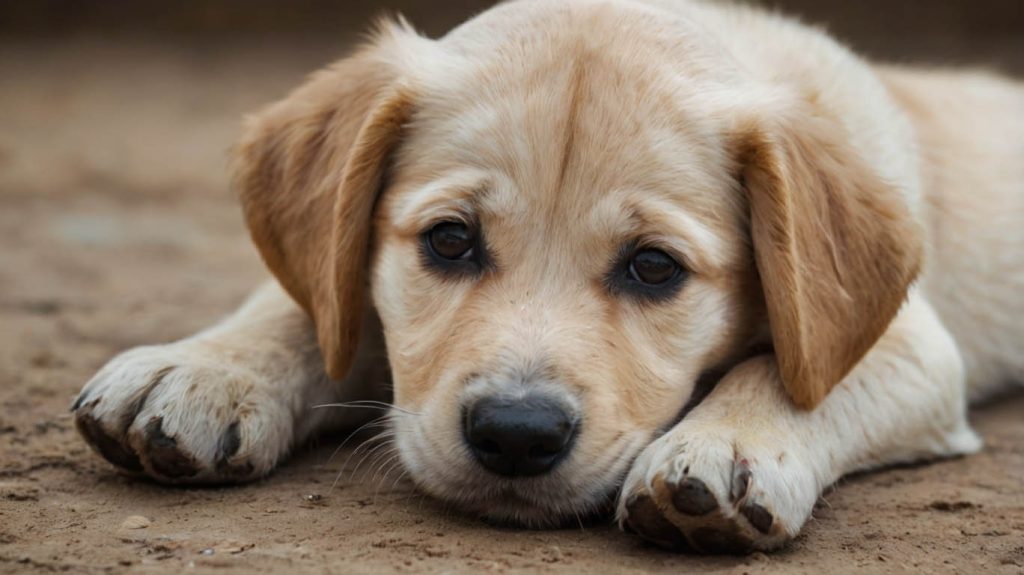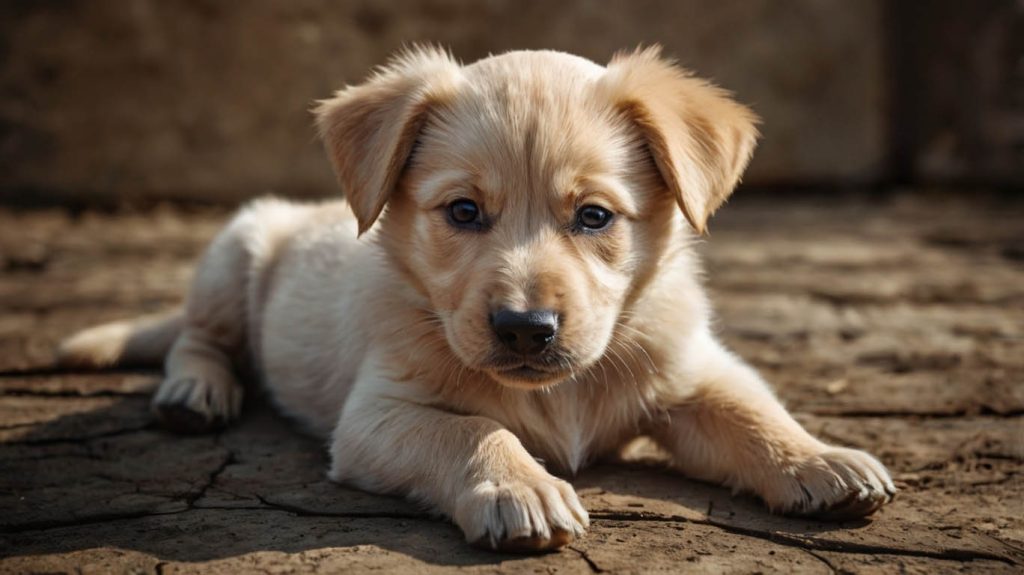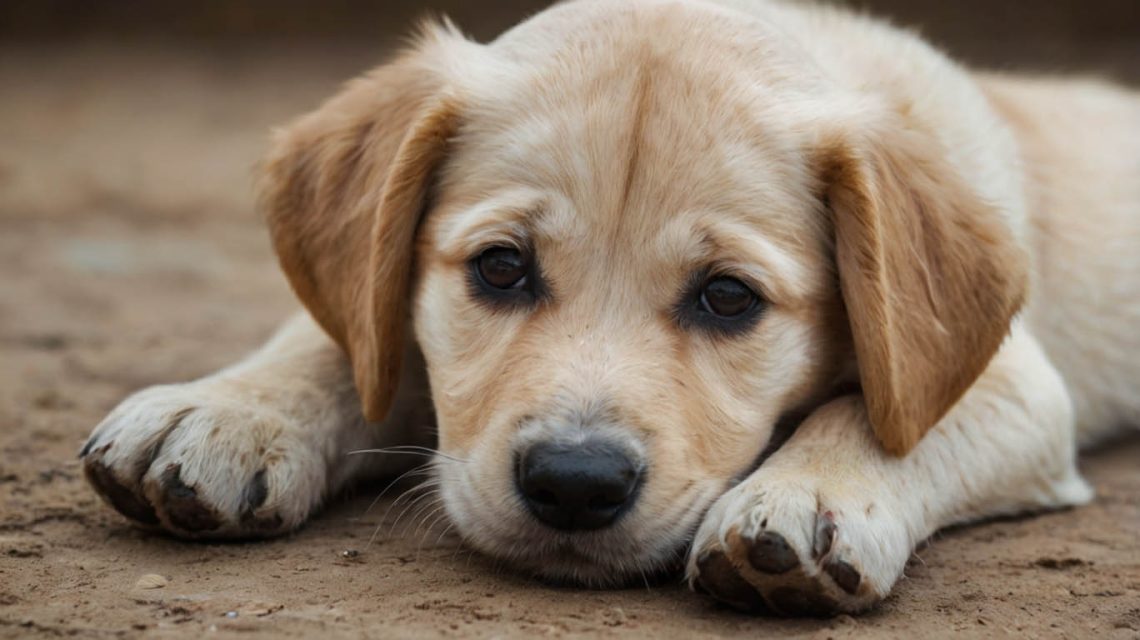Puppy Dehydration: A Guide to Recognizing the Symptoms and Saving Your Pet
Meet Sarah and her new golden retriever puppy, Buster. For the first few weeks, their life was a whirlwind of joyful chaos—chewed slippers, puppy kisses, and endless games of fetch in the backyard. One particularly warm afternoon, after a long play session, Sarah noticed Buster wasn’t his usual bouncy self. He ignored his favorite squeaky toy and flopped onto the cool kitchen floor, his breathing a little faster than normal. Sarah initially dismissed it as simple tiredness. However, a nagging feeling prompted her to look closer, and she soon realized she was witnessing the early puppy dehydration symptoms.
This story is incredibly common. Puppies, with their boundless energy and small bodies, are far more susceptible to dehydration than adult dogs. Consequently, understanding the signs is not just helpful; it’s a critical part of responsible puppy ownership.
This comprehensive guide will walk you through everything you need to know. We’ll explore why dehydration is so dangerous for your little companion, how to spot the unmistakable puppy dehydration symptoms, identify the root causes, and create an immediate action plan. Therefore, let’s ensure you have the knowledge to protect your furry family member.
Why Recognizing Puppy Dehydration Symptoms is So Crucial
A puppy’s body is a delicate, fast-developing system. Unlike adult dogs, they have a higher metabolism and a higher percentage of water in their bodies, which they can lose at an alarming rate.
Water is essential for nearly every bodily function, including:
- Regulating Body Temperature: Helps them cool down, especially during hot weather or after exercise.
- Transporting Nutrients: Carries vital nutrients and oxygen to cells throughout the body.
- Digestion: Aids in breaking down food and absorbing nutrients.
- Flushing Toxins: Lubricates joints and helps the kidneys and liver filter waste from the blood.
When a puppy becomes dehydrated, these vital processes begin to slow down and, in severe cases, fail. This can quickly lead to organ damage, shock, and can tragically be fatal. Because their bodies are so small, even a minor loss of fluid from a bout of diarrhea or vomiting can have a significant impact. As a result, immediate recognition of puppy dehydration symptoms is your first and most important line of defense.

The Unmistakable Puppy Dehydration Symptoms to Spot
Dehydration occurs on a spectrum. Initially, the signs can be subtle, but they become progressively more obvious and dangerous as the condition worsens. Being able to identify these signs early can make all the difference.
Early Puppy Dehydration Symptoms to Watch For
These are the first warning signs. If you notice any of these, it’s time to pay close attention and encourage your puppy to drink.
- Lethargy and Low Energy: This is often the very first sign. Is your normally energetic puppy suddenly listless, tired, or uninterested in playing? A sudden drop in energy, especially after activity or on a hot day, is a major red flag. Buster, from our story, showed this first.
- Dry Nose and Gums: A healthy puppy’s nose and gums should be moist. Gently run your finger over their gums. If they feel dry or sticky to the touch, your puppy is likely dehydrated. A dry, cracked nose can also be an indicator.
- Thick, Stringy Saliva: Instead of normal, watery saliva, a dehydrated puppy might have thick, ropey drool. This is a clear sign that the body is conserving water.
- Loss of Appetite: A puppy that suddenly refuses food or treats, especially a high-value one, may be feeling the effects of dehydration.
Catching these early puppy dehydration symptoms allows for prompt intervention, which often resolves the issue before it becomes a serious medical emergency.
Advanced Puppy Dehydration Symptoms Needing Urgent Care
If you observe any of the following symptoms, your puppy’s dehydration is likely moderate to severe. You should contact your veterinarian immediately.
- Sunken Eyes: This is a very serious sign. Dehydration causes the fatty tissue behind the eyes to shrink, giving them a hollowed-out or sunken appearance. The eyes may also look dull instead of bright and clear.
- Loss of Skin Elasticity (The Skin Turgor Test): This is a classic test for dehydration. Gently lift the skin on your puppy’s back between the shoulder blades. In a hydrated puppy, the skin will snap back into place almost instantly. However, if the skin “tents” and returns to its position slowly, it is a definitive sign of dehydration. The slower it returns, the more severe the dehydration. This is one of the most reliable puppy dehydration symptoms you can check at home.
- Delayed Capillary Refill Time (CRT): This test checks blood circulation. Gently press your finger on your puppy’s gums until they turn white. Then, remove your finger and time how long it takes for the color to return. In a healthy puppy, it should be less than two seconds. If it takes longer, it signifies poor circulation, a common result of dehydration.
- Vomiting or Diarrhea: While these are often the cause of dehydration, their presence alongside other symptoms indicates a rapidly worsening situation. Your puppy is losing fluids faster than they can replace them.
- Collapse or Weakness: In the most severe cases, a puppy may become too weak to stand or may collapse. This is a critical emergency.

What Causes Puppy Dehydration Symptoms to Appear?
Understanding the cause is just as important as recognizing the symptoms. It helps you prevent dehydration from happening in the first place.
Illness as a Primary Cause of Puppy Dehydration
Often, puppy dehydration symptoms are a secondary problem resulting from an underlying illness.
- Gastrointestinal Upset (Vomiting & Diarrhea): This is the most common culprit. Viruses like Parvovirus (which is extremely dangerous for puppies), bacterial infections, or even dietary indiscretion can lead to significant fluid loss.
- Fever: When a puppy has a fever, its body uses more water in an attempt to cool down, leading to dehydration.
- Kidney Disease or Diabetes: While less common in young puppies, these conditions can cause excessive urination and subsequent dehydration.
Environmental and Behavioral Factors Causing Puppy Dehydration
Sometimes, the cause is simpler and directly related to the puppy’s environment or behavior.
- Heat and Overexertion: A puppy playing vigorously on a hot day loses a tremendous amount of water through panting. Without constant access to fresh water, they can become dehydrated very quickly. This was the trigger for Buster’s symptoms.
- Insufficient Water Intake: This can happen for several reasons. Perhaps the water bowl is empty, dirty, or in a location the puppy doesn’t like. Some puppies are simply not good drinkers and need extra encouragement.
Your Action Plan When You See Puppy Dehydration Symptoms
Seeing these signs can be scary, but having a clear plan will help you act quickly and effectively.
First Aid: What to Do for Mild Puppy Dehydration Symptoms
If you’ve only noticed mild symptoms like slight lethargy or sticky gums after a play session, you can take immediate action at home.
- Move to a Cool Place: Immediately bring your puppy indoors or into a shaded, cool area.
- Offer Fresh, Cool Water: Provide a clean bowl of fresh water. Don’t force them to drink.
- Offer Ice Cubes: Many puppies enjoy crunching on ice cubes or licking them. This is a great way to get fluids into them slowly.
- Consider Electrolyte Solutions: You can offer unflavored pediatric electrolyte solutions like Pedialyte. However, it is always best to call your vet first to get the correct dosage and ensure it’s appropriate for your puppy’s situation.
When to Call the Vet Immediately for Puppy Dehydration Symptoms
Your veterinarian is your most important partner in your puppy’s health. Do not hesitate to call them.
Contact your vet immediately if:
- Your puppy is showing any of the advanced puppy dehydration symptoms (sunken eyes, skin tenting, collapse).
- Your puppy is vomiting or has diarrhea.
- Your puppy refuses to drink any water for several hours.
- You suspect your puppy may have ingested something toxic.
- Your puppy is very young (under 12 weeks).
- When in doubt, always call. It is far better to be safe than sorry. A vet can administer subcutaneous or intravenous (IV) fluids, which is the fastest and most effective way to rehydrate a severely dehydrated puppy.
A Case Study Resolved: Sarah and Buster
Let’s return to our story. Sarah, noticing Buster’s lethargy and sticky gums, immediately brought him inside to the cool air conditioning. She offered him his water bowl, but he ignored it. Remembering a tip, she dropped a few ice cubes on the floor, which he began to lick. While he did this, she performed the skin turgor test. The skin was a little slow to return to place.
Recognizing these were clear puppy dehydration symptoms, she didn’t wait. She called her veterinarian, explained the situation, and was advised to come in. The vet confirmed Buster was moderately dehydrated, likely from the heat and exertion. He was given a small amount of subcutaneous fluids, and Sarah was praised for her quick action. Because she acted fast, Buster was back to his playful self by the next morning.
Proactive Prevention: Stopping Puppy Dehydration Before It Starts
The best treatment is always prevention. By incorporating these simple habits, you can significantly reduce the risk of your puppy ever experiencing dangerous dehydration.
- Constant Access to Fresh Water: Ensure your puppy has at least one (preferably more) bowl of clean, fresh water available at all times. Clean the bowls daily.
- Monitor Water Intake: Pay attention to how much your puppy drinks. If you notice a sudden decrease, investigate the reason.
- Manage Exercise and Heat: On hot days, limit strenuous activity to the cooler morning and evening hours. Always bring a portable water bowl and bottle on walks.
- Add Moisture to Food: Consider adding a bit of water or a spoonful of plain, vet-approved wet food to your puppy’s kibble to increase their overall fluid intake.
- Be Vigilant During Illness: If your puppy has an upset stomach, pay extra close attention to their hydration level and stay in close contact with your vet.
Your Puppy’s Health is in Your Hands
Your puppy depends on you for everything, especially for recognizing when something is wrong. Understanding and watching for puppy dehydration symptoms is a fundamental skill for every dog owner. By staying vigilant, providing a safe environment, and knowing when to seek professional help, you ensure your little companion has the best possible start in life.
Don’t wait until it’s too late. Share this guide with fellow puppy parents to spread awareness. If you see any of these signs in your own puppy, contact your veterinarian immediately for guidance.


